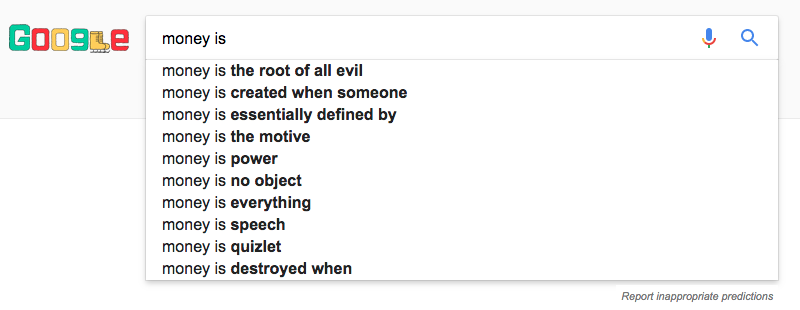Money is Information
Published 07 Mar 2018

What is Money?
We use money every day, but have you ever stopped and just thought about what money is? Usually when we think about what money is we think about it as wealth, a medium of exchange, or perhaps a neccessary evil.
Entire libraries could be filled with books on this topic. Historically, whether shells, gold, or electronic bits, money has existed for thousands of years in human culture. We created money in order to have some token representing value that we can exchange with each other in order to make trading flow more easily and efficiently.
The six characteristics of money
- Durability - Bananas make poor money because they rot.
- Portability - Transporting money needs to be easy so that trading large amounts of wealth over large distances is convenient.
- Divisibility - You don’t want to be forced to buy a stick of gum with a $100 bill. Thus we have dollars, quarters, and pennies in order to accurately describe the price of an item or service.
- Fungibility/Uniformity - If some dollars are deemed more valuable than others it undermines our ability to transact with each other.
- Limited Supply - Money supply that is inflated infinitely causes the value to drop infinitely closer to zero.
- Acceptability - Social norms or laws cause us to converge around common mediums of exhange that vary by culture.
Will we always need money?
Short of evolving into beings of pure light, yes. There are certain things that will always be scarce. We all have a limited amount of time and need to choose between doing one thing or another at any given moment. Resources are finite and take energy to aquire and refine into different materials or goods. All the automation and robots you can imagine will never change those facts.
Money is a form of communication
Money is a language for signaling how we value things. Money is a measuring stick of time and effort, and more importantly an abstraction of value and desire. Without money it would be extremely difficult to have measureable feedback on what kind of value we are providing to others. People may say they prefer one thing, but then spend their money quite differently. Thus money gives us an empirical measurement of how actions speak louder than words.
Information is the new oil
In the 20th century, oil powered progress. More and more, information drives progress as the physical is supplanted by the virtual. Money itself is quickly evolving from the physical world to the digital realm. Information is power.
Both our words and our money are used as expressions of our thoughts and intentions. Our spending is often more honest than our words. Yet most people take free speech as a given while shouting for tight regulation and control of money. If money is just information should it be regulated? Can it be?
Money in the Information Age
We are currently going through a financial revolution due to the invention of Bitcoin and it’s offshoots. Never before in history has there been a mechanism that allowed two or more parties to exchange money (information) without some 3rd party validating and overseeing the transaction. Thanks to the combined power of 1) cryptography, 2) peer to peer decentralized networking, and 3) Bitcoin’s proof of work innovation - we have digital money that can’t be copied, forged, or censored. It can’t be controlled or stopped because it’s just information that has no central point of failure.
As the technology of money progresses, the capabilities of money also begin to take on properties beyond just representing value. Digital cryptocurrency “tokens” can have elements of identity, security, reputation, association, and so forth. The potential use cases for this new kind of money are seemingly limitless. We are only just seeing the first experiments of these new kinds of money enter the market, and they are evolving quickly. To get a sense of the volume of these new tokens being created, take a look at the list of ICOs (initial coin offerings) on ICO Alert.
Implications
To review:
- Money is an information communication protocol
- Bitcoin/crytpocurrencies are decentralized digital money
- Decentralized information and communication can’t be controlled or stopped
What does it mean to have money that can’t be controlled?
The monopoly control of money through the central banking and nation state model will come to an end (or just become largely irrelevant) at some point in the future. Kings and countries used to dictate the “right” religion. Dictating the “right” money will go the same route, and people in the future will look back on countries issuing and controlling money as a sort of financial dark age. The right to choose your money and transact freely will be as expected as the right to choose your religion or express your thoughts and ideas.
Past Posts
- 07 Mar 2018 » Money is Information
- 20 Feb 2018 » So You Want to Buy Bitcoin
- 31 Jan 2018 » The Why of Bitcoin
- 19 Jan 2018 » Combining Arrays with Ruby’s Array#product Method
- 27 Nov 2017 » Andreas Antonopoulos: How bitcoin is changing the world